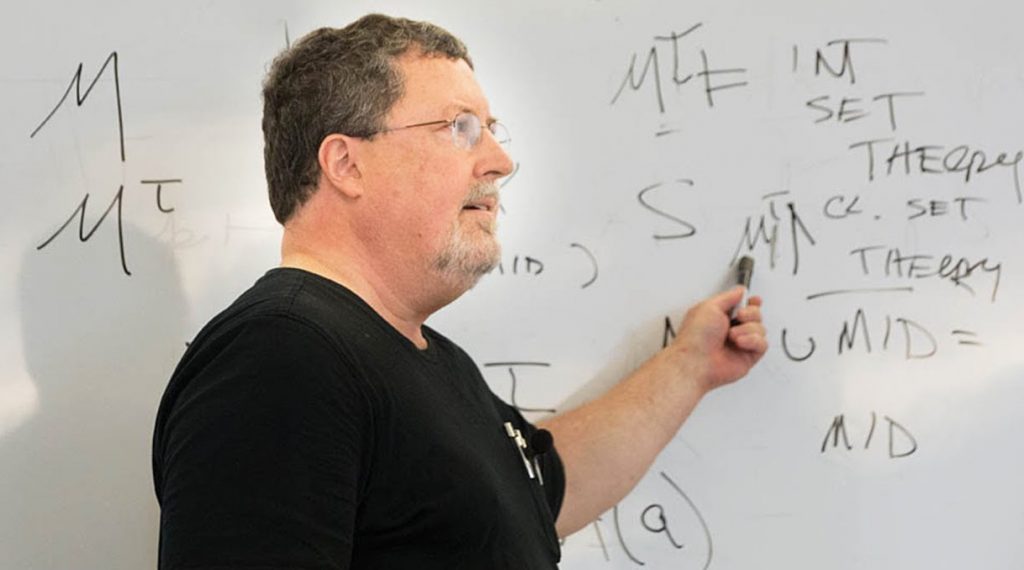David Charles McCarty (1953-2020)
David Charles McCarty, professor of philosophy at Indiana University, has died.
Professor McCarty was worked on the philosophy and history of mathematics and logic, and early analytic philosophy. You can read an overview of his work in an obituary posted at the Indiana University Department of Philosophy website. An excerpt:
He published over 120 peer-reviewed papers. He wrote on intuitionism, the completeness problem for intuitionistic logic, Markov’s Principle, constructive validity, realizability and recursive mathematics, potentially infinite sets, denotational semantics, Church’s Thesis, logical truth, the meanings of the connectives, limits of mathematical explanation, mathematical realism, structuralism, antirealism, the philosophy of logical atomism, as well as Hilbert and du Bois-Reymond, Carnap, Brouwer, Helmholtz, Frege, Wittgenstein, Dedekind, Gödel, Anselm’s ontological argument, Goethe, historical fiction, the pathetic fallacy, and other topics. His book To an Infinite Power: Mathematical and Philosophical Writings of Paul du Bois-Reymond, will be published by Oxford University Press in 2021.
Professor McCarty had several main lines of work in logic. He was one of the world’s leading experts on constructive mathematics and intuitionistic logic, and all matters related to their history and philosophy. He proved a number of results on these topics that are of permanent importance both to people in that field and to outsiders.
Professor McCarty died of a heart attack on November 25th.
The Philosophy Department at Indiana is preparing a Memory Book for Professor McCarty. Please email Kirk Ludwig if you would like to contribute.



Though I’ve shared a full remembrance with the department, I’ll just say the following here: as a professor and teacher, David was absolutely first-rate. He cared about his students and invested a great deal of time in our growth as thinkers. He was also fun to be around and knew how to balance hard work with revelry. I’m glad that I was able to know him.
I am one of David’s first cousins. He was a singularly brilliant scholar and I enjoyed speaking to him from time to time. His father was on the first wave invasion at Utah Beach, Normandy France in 1944.
I had been the cousin working on assembling our family genealogy, and David had done an “oral interview” with his father about his experiences in Europe during WWII. David was planning to meet with me and turn his work over to me after his retirement. The Covid-19 pandemic made getting together problematic in late 2020, and sadly we lost him shortly after his retirement.
I’ve attempted repeatedly to get the relevant McCarty family documents from his wife, Cathy Parker. I believe she works in the University copy shop. She has refused to turn these McCarty family records over to the proper family. David would be appalled at this boorish behavior, which just goes to show what second golddigger wives are all about.